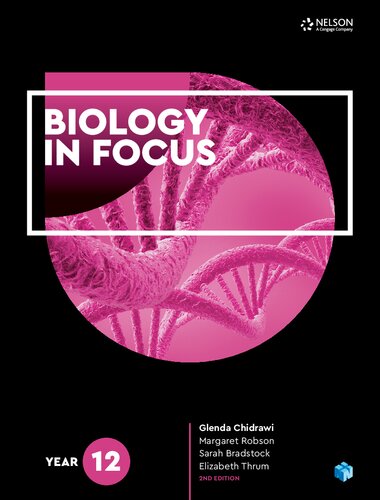

Most ebook files are in PDF format, so you can easily read them using various software such as Foxit Reader or directly on the Google Chrome browser.
Some ebook files are released by publishers in other formats such as .awz, .mobi, .epub, .fb2, etc. You may need to install specific software to read these formats on mobile/PC, such as Calibre.
Please read the tutorial at this link: https://ebookbell.com/faq
We offer FREE conversion to the popular formats you request; however, this may take some time. Therefore, right after payment, please email us, and we will try to provide the service as quickly as possible.
For some exceptional file formats or broken links (if any), please refrain from opening any disputes. Instead, email us first, and we will try to assist within a maximum of 6 hours.
EbookBell Team

5.0
18 reviews
ISBN 10: 0170449629
ISBN 13: 9780170449625
Author: Kirsten Prior
Science is the systematic study, by observation and experiment, of the natural and physical world (Fig. 1.1). Science is characterised by a way of thinking and working, and, most fundamentally, by questioning. The knowledge and understanding that arise from this questioning are not in themselves science. They are the products of science, as is the technology that arises from this knowledge and understanding. Science is empirical, which means that when scientists ask questions, they seek to answer them by using evidence, in particular observational and experimental evidence. Biology as a field of study was named in the 19th century and arose from the studies of medicine and natural history, both of which date back to ancient times. The term ‘biology’ comes from the Greek words bios (life) and logos (word or discourse). Biology asks questions about all living things, including plants, animals and micro-organisms. It asks questions about their structure and functioning, how and why they have changed over time and continue to change, about their interactions with each other and the environment, and about biodiversity and the continuity of life – looking at heredity and variation. These fields of interest in biology are grouped into subdivisions such as botany, zoology, microbiology, evolutionary biology, ecology and genetics. Given that FIGURE 1.1 Investigating in biology all living things are interdependent, biology is a fascinating science!
Working Scientifically and Depth Studies
Sexual and Asexual Reproduction
Cell Replication
DNA and Polypeptide Synthesis
Genetic Variation
Inheritance Patterns in a Population
nelson biology in focus year 12
biology in focus year 12
biology in focus year 12 pdf
biology in focus year 12 answers
biology in focus year 12 skills and assessment workbook
biology in focus year 12 hsc
Tags: Kirsten Prior, Biology, focus